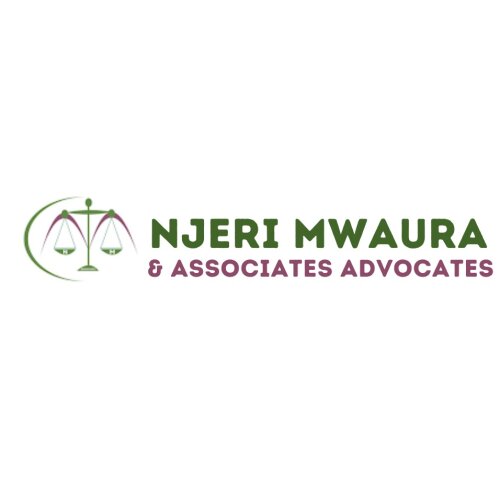About Antitrust Litigation Law in Kenya
Antitrust litigation in Kenya pertains to legal disputes and enforcement of laws that regulate competition among businesses. The aim of these laws is to promote fair competition, prevent monopolies, restrict unfair trade practices, and protect the interests of consumers, competitors, and the general public. In Kenya, the primary framework governing antitrust and competition issues is the Competition Act, 2010, which is enforced by the Competition Authority of Kenya (CAK). Antitrust litigation typically involves suspected breaches of this Act, such as price-fixing, abuse of dominant position, restrictive trade agreements, and merger control irregularities. Litigation may occur in courts or through dispute resolution frameworks established by regulatory bodies.
Why You May Need a Lawyer
Seeking legal assistance in antitrust litigation is crucial due to the complex nature of competition laws and the potential consequences of breaching them. Common situations where legal help is necessary include:
- Being investigated by the Competition Authority of Kenya for suspected anti-competitive practices.
- Filing a complaint against a competitor or other business engaging in unfair trade practices.
- Defending your business from allegations of collusion, price-fixing, or market allocation.
- Navigating the merger control and notification processes to ensure compliance with all legal requirements.
- Seeking compensation for losses suffered due to anti-competitive conduct by others.
- Understanding changes in Kenya's competition laws and how they may affect your business operations.
- Advising on compliance programs and risk management strategies to minimize the risk of violating competition laws.
Antitrust litigation can have far-reaching effects, such as financial penalties, reputational damage, and even criminal prosecution in some cases. A qualified lawyer can help guide you through investigations, represent you in court, negotiate settlements, and provide strategic advice.
Local Laws Overview
Kenya's principal legislation on antitrust and competition is the Competition Act, 2010. This law aims to regulate market conduct and prohibit practices that restrict competition. Key features of the Act include:
- Prohibition of Restrictive Trade Practices: The Act prohibits agreements or practices between businesses that prevent, restrict, or distort competition. This includes price fixing, bid rigging, and allocation of markets or customers.
- Abuse of Dominance: Firms holding a dominant market position must not abuse their power by, for example, imposing unfair purchase or selling prices or limiting production to the prejudice of consumers.
- Merger Control: The Act requires certain mergers and acquisitions to be notified to the Competition Authority for approval. Unauthorized mergers may be void, and penalties can be imposed.
- Consumer Welfare: Provisions are included to protect consumers from unjustified price increases and other unfair market practices.
- Investigations and Penalties: The Competition Authority has the power to investigate, search premises, and impose penalties, including fines and orders to stop unlawful conduct.
- Remedies: Victims of anti-competitive acts can seek damages and other remedies through the Competition Tribunal or courts.
Other relevant statutes and provisions may apply, particularly in regulated sectors such as telecommunications, energy, and finance.
Frequently Asked Questions
What is antitrust litigation?
Antitrust litigation involves legal actions related to violations of competition laws, such as collusion, abuse of dominance, or anti-competitive mergers. These cases may be initiated by regulators, businesses, or consumers.
Who enforces antitrust laws in Kenya?
The Competition Authority of Kenya (CAK) is the main regulatory body tasked with enforcing antitrust and competition laws in Kenya.
What constitutes an abuse of dominance?
Abuse of dominance occurs when a business with significant market power engages in practices that unfairly restrict competition, such as predatory pricing, refusal to deal, or exclusive dealing.
Are all mergers required to be notified to the Competition Authority?
Not all mergers must be notified. Only mergers that meet certain financial thresholds or may raise competition concerns need approval from the CAK. Legal guidance is recommended to determine if notification is required.
What are the penalties for violating antitrust laws in Kenya?
Penalties can include hefty fines, orders to cease and desist certain conduct, and in serious cases, criminal charges and imprisonment.
Can individuals or businesses file complaints about anti-competitive conduct?
Yes, individuals and businesses can file complaints with the CAK or seek remedies through the Competition Tribunal and courts if they are affected by anti-competitive practices.
How long does an antitrust investigation take in Kenya?
The duration varies depending on the complexity of the case. Investigations may last from several months to more than a year.
Is it possible to settle antitrust cases out of court?
Yes, some cases may be resolved through settlements, commitments, or undertakings, often with the involvement or oversight of the CAK.
What defenses are available to businesses accused of anti-competitive conduct?
Defenses may include lack of market dominance, absence of anti-competitive effect, justification or exemptions recognized under the law, and procedural errors by the regulator.
Do international companies operating in Kenya have to comply with local competition laws?
Yes, all businesses operating in Kenya, local or international, must comply with Kenya's competition laws if their conduct affects the Kenyan market.
Additional Resources
If you need further information or assistance on antitrust litigation in Kenya, the following resources may be helpful:
- Competition Authority of Kenya (CAK): The main regulatory body providing guidance, complaint mechanisms, and publications on competition matters.
- Competition Tribunal: A specialized body handling appeals and disputes arising from CAK decisions.
- Attorney General's Office: Offers legal policy information and updates on relevant legislation.
- Kenya Law Reports: Provides access to judgments and legal commentary on competition matters.
- Law Society of Kenya: Assists in finding qualified lawyers with experience in competition and antitrust law.
Next Steps
If you require legal assistance in an antitrust litigation matter, here are recommended steps to follow:
- Document all relevant facts, correspondence, and records related to your situation.
- Seek a consultation with a qualified lawyer experienced in competition and antitrust law in Kenya.
- If you are under investigation, respond to regulator requests promptly but only after obtaining legal advice.
- If you wish to file a complaint, prepare a detailed written account of the alleged conduct, evidence, and impact on your business or interests.
- Engage your lawyer to communicate with authorities, represent you in proceedings, and explore resolution options such as settlement or mediation.
- Stay informed about your rights, obligations, and any new developments in competition law.
Antitrust litigation often involves technical, procedural, and substantive legal issues. Early legal intervention can help protect your interests, minimize risks, and ensure compliance with Kenyan law.
Lawzana helps you find the best lawyers and law firms in Kenya through a curated and pre-screened list of qualified legal professionals. Our platform offers rankings and detailed profiles of attorneys and law firms, allowing you to compare based on practice areas, including Antitrust Litigation, experience, and client feedback.
Each profile includes a description of the firm's areas of practice, client reviews, team members and partners, year of establishment, spoken languages, office locations, contact information, social media presence, and any published articles or resources. Most firms on our platform speak English and are experienced in both local and international legal matters.
Get a quote from top-rated law firms in Kenya — quickly, securely, and without unnecessary hassle.
Disclaimer:
The information provided on this page is for general informational purposes only and does not constitute legal advice. While we strive to ensure the accuracy and relevance of the content, legal information may change over time, and interpretations of the law can vary. You should always consult with a qualified legal professional for advice specific to your situation.
We disclaim all liability for actions taken or not taken based on the content of this page. If you believe any information is incorrect or outdated, please contact us, and we will review and update it where appropriate.

















